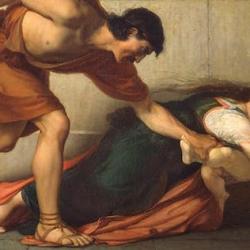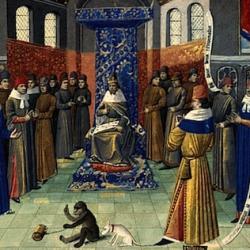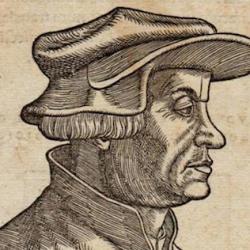Following Henri de Lubac’s studies in medieval Eucharistic theology, Ernst Kantorowicz traces the development of a sacralized-secular politics in the later medieval period, as ecclesiological principles were applied to national politics.
Lucas de Penna drew a direct line from the church as mystical body to the political body: “The Prince is the head of the realm, and the realm the body of the Prince. Just as men are joined together spiritually in the spiritual body, the head of which is Christ, so are men joined together morally and politically in the respublica, which is a body the head of which is the Prince” (quoted 216).
In the twelfth century, Dubrick of Caerleon laid out the implications: “Fight for your patria and suffer even death for her if such should overwhelm you. Death itself is Victory and is means of saving the soul. For whoever suffers death for his brothers, offers himself a living host to God, and unambiguously he follows Christ. If, therefore, one of you be overcome by death in this war, let that death be atonement for, and absolution of, all his sins (quoted 240). Enea Silvio Pocolomini, later Pope Pius II agreed: “It is proper that one man should die for the people. . . . It should not appear too hard if we say that for the benefit of the whole body a foot or hand, which in the commonweal are the citizens, must be amputated, since the prince himself, the head of the mystical body of the republica, is held to sacrifice his life whenever the commonweal demands it” (261).
Kantorowicz observes that “Henry of Ghent gave the final blessing to pro patria mori by comparing the sacrifice of a citizen for his brothers and his community to the supreme sacrifice which Christ made for the salvation of man, and of mankind. Thus it happened that in the thirteenth century the crown of martyrdom began to descend on the war victims of the secular state” (244).











